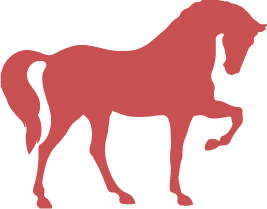4 TIPS TO OPTIMALLY PREPARE YOUR HORSE FOR COMPETITION AND HOT DAYS
Article Courtesy Cavalor The summer season is wonderful. Long evenings, plenty of competitions, and more time to enjoy horses and equestrian sport….
Free Delivery when you spend $49 or more. (Weight Limits Apply – view more)
 Dog
Dog

Shop Tuckers great range of dog food, health care & wellness products today. Delivered or Click & Collect.
 Cat
Cat

Tuckers has a great range of cat food, health care & litter products for your beloved cat. Shop now.
 Horse
Horse

Tuckers carry a huge range of food, supplements, health care, hoof care and grooming accessories. Shop now.
 Chook/Bird
Chook/Bird

Tuckers range of food, accessories & health care products will keep your chooks & birds happy and healthy.
 Small Animal
Small Animal

Shop food and health care products for your little mates @ Tuckers. Delivered or Click & Collect.
 Farm/Garden
Farm/Garden

Tuckers carry a wide range of sheep & cattle products, plus everything you’ll need around the farm or garden.
 Dog
Dog

Shop Tuckers great range of dog food, health care & wellness products today. Delivered or Click & Collect.
 Cat
Cat

Tuckers has a great range of cat food, health care & litter products for your beloved cat. Shop now.
 Horse
Horse

Tuckers carry a huge range of food, supplements, health care, hoof care and grooming accessories. Shop now.
 Chook/Bird
Chook/Bird

Tuckers range of food, accessories & health care products will keep your chooks & birds happy and healthy.
 Small Animal
Small Animal

Shop food and health care products for your little mates @ Tuckers. Delivered or Click & Collect.
 Farm/Garden
Farm/Garden

Tuckers carry a wide range of sheep & cattle products, plus everything you’ll need around the farm or garden.

Pregnant mares require special nutritional attention to ensure the maintenance of their own health and body condition along with the proper growth of the developing fetus. In the first four months of gestation, not much dietary change is needed. However, as pregnancy advances, increases in energy, nutrients, and water are all necessary.
Key points in feeding late-pregnant mares include:
Feed, but don’t overfeed or underfeed. As mentioned, mares have increased energy needs from about five months into gestation through birth. Mares are expected to gain approximately 12-15% of their initial body weight during pregnancy, most of which typically occurs in late gestation (nine to eleven months). By the last month of pregnancy, an average mare will consume roughly 20-22% more calories over maintenance needs.
Mares that are too thin throughout pregnancy may have a prolonged gestation period and have depleted nutrient stores. For mares that do need the extra calories, a concentrate formulated for pregnant mares should be fed. Catherine Whitehouse, M.S., a nutrition advisor for Kentucky Equine Research, recommends, “As each trimester approaches, take a moment to compare your feed program with that of the manufacturer’s recommendations and adjust as necessary to ensure proper nutrition is provided throughout the pregnancy.”
Avoid tall fescue grass. Fescue grass is known for containing an internal plant fungus called endophyte. Endophyte helps the plant be more tolerant of environmental stressors, but it is harmful to pregnant mares. Mares consuming endophyte-infected fescue may have prolonged gestation periods, difficulty foaling, a thickened placenta, lack of milk production, and difficulty rebreeding. Foals may be stillborn or born weak. Remove pregnant mares from any pasture where endophyte-infected fescue may be growing 60-90 days prior to foaling date, and avoid fescue hay whenever possible.
Vitamin and mineral balance. Recommendations for vitamin A and vitamin E intake are higher throughout pregnancy. Calcium and phosphorus needs begin to increase at seven months, while copper intake should increase slightly at nine months. Mares that maintain condition on forage alone may not have sufficient vitamin and mineral intake. A fortified ration balancer provides essential nutrients at low feeding rates, without adding a lot of extra calories. Kathleen Crandell, Ph.D., a nutritionist with Kentucky Equine research, noted, “For mares that truly need to avoid any type of grain concentrate, a high-quality vitamin and mineral supplement may suffice to balance the nutrients low or missing in the forage.”
Take care of the gut. One study* reported no difference in the presence of gastric ulcers in pregnant and nonpregnant mares. Current drug treatment for ulcers has not been fully evaluated for safety in pregnant mares, so best management practices for ulcer prevention are warranted. These include access to plenty of forage, minimizing environmental stress, and avoiding high-starch and high-sugar feed. Use of a research-proven digestive supplement as part of an overall management program can help support proper health of both the foregut and hindgut.
Feeding the pregnant mare requires planning and care. Dietary needs begin to change at five months of gestation, so energy, protein, vitamins, and minerals should be adjusted accordingly. Aim to keep the mare at a body condition score of about 5 or 6 to avoid problems throughout pregnancy. Keep mares away from tall fescue grass, but provide plenty of free access to forage and water. Seek the advice of a qualified nutritionist for guidance.
*Le Jeune, S.S., J.E. Nieto, J.E. Dechant, and J.R. Snyder. 2009. Prevalence of gastric ulcers in Thoroughbred broodmares in pasture: A preliminary report. The Veterinary Journal 181(3):251-255.
Entire range - quick and secure delivery
Buy securely online and pickup at your local store
Call your local store and come on down to pickup
© 2026 Tuckers Pet & Produce.
